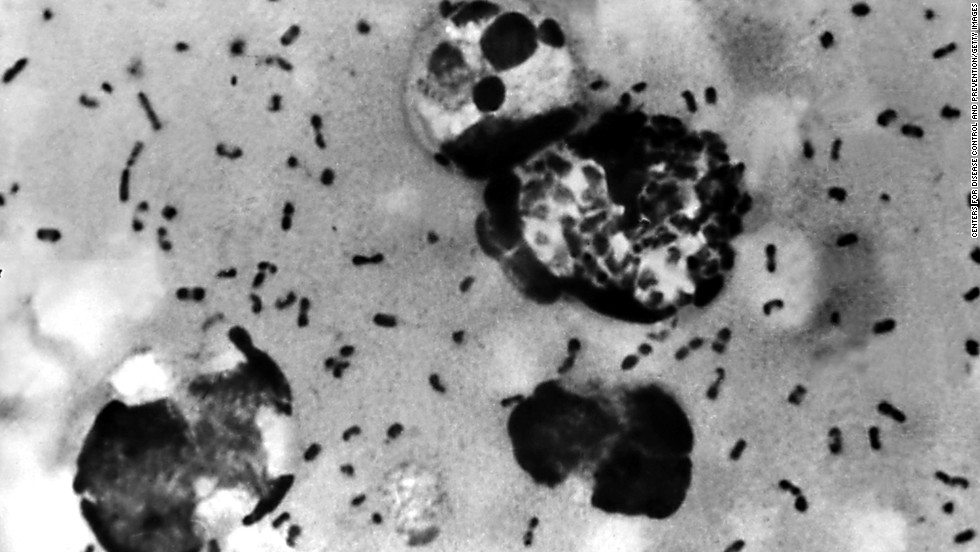
| Tracking the next pandemic: Avian Flu Talk |
plague kills dozens in Madagascar |
Post Reply 
|
| Author | |
carbon20 
Moderator 
Joined: April 08 2006 Location: West Australia Status: Offline Points: 65816 |
 Post Options Post Options
 Thanks(0) Thanks(0)
 Quote Quote  Reply Reply
 Topic: plague kills dozens in Madagascar Topic: plague kills dozens in MadagascarPosted: February 01 2015 at 1:44pm |
Experts raise alarm as plague kills dozens in Madagascar A smear shows the presence of the Yersinia pestis bacteria, which causes the plague. Story highlights
(CNN)An outbreak of the plague has killed dozens in Madagascar, and experts fear those numbers could go up. At least 119 cases were confirmed by late last year, including 40 deaths, the World Health Organization said in a statement. And the disease is taking an alarming turn. "The outbreak that started last November has some disturbing dimensions," the WHO said this week. "The fleas that transmit this ancient disease from rats to humans have developed resistance to the first-line insecticide." It's especially spreading in densely populated slums in the capital of Antananarivo. Cases were confirmed in at least 20 districts and the capital, Christophe Rogier of the Institut Pasteur de Madagascar said late last year. Rogier is part of a team working with the WHO on the ground to combat the disease. < id="twitter-widget-0" scrolling="no" border="0" allowtransparency="true" ="twitter-tweet twitter-tweet-rendered" allowfullscreen="" title="ded Tweet" height="186" style="-sizing: border-; width: 500px; display: block; max-width: 99%; min-width: 220px; padding: 0px; border-radius: 5px; margin: 10px 0px; border-color: rgb238, 238, 238 rgb221, 221, 221 rgb187, 187, 187; border-width: 1px; border-style: solid; -shadow: rgba0, 0, 0, 0.14902 0px 1px 3px; : static; visibility: ;"> Rodents and rainsThe plague is caused by Yersinia pestis, a bacteria found in rodents and spread by fleas. Recent flooding in the nation has displaced tens of thousands of people and an "untold numbers of rats," leading to fears the disease could spread, said Margaret Chan, director-general of the World Health Organization. How is it spread?Once an infected flea bites human beings, they can develop the bubonic plague, which is marked by swollen lymph nodes. If the bacteria reaches the lungs, one can develop pneumonic plague. The pneumonic type is rare but more dangerous than bubonic plague because it can be transmitted between humans through inhalation and coughing. "If diagnosed early, bubonic plague can be successfully treated with antibiotics," the World Health Organization said. "Pneumonic plague, on the other hand, is one of the most deadly infectious diseases; patients can die 24 hours after infection." At least 8% of cases advance to pneumonic plague, the WHO said. It's unclear what percentage of the current cases comprise the more lethal plague. Past plague epidemics have have occurred in Europe, the United States, Africa, Asia and South America. The plague was known as the "Black Death" in Europe in the 14th century, and led to the deaths of 50 million people, the WHO said. |
|
|
Everything we hear is an opinion, not a fact. Everything we see is a perspective, not the truth.🖖
Marcus Aurelius |
|
 |
|
Anything 
Guest Group 
|
 Post Options Post Options
 Thanks(0) Thanks(0)
 Quote Quote  Reply Reply
 Posted: February 02 2015 at 2:27am Posted: February 02 2015 at 2:27am |
|
Some researchers believe that the Black Death, which killed half the population of Europe, spread much too quickly to be caused by fleas, and must have been pneumonic plague. There's a nursery rhyme from the period - 'Ring a ring o' rosies, a pocket full of posies. Atishoo, atishoo, we all fall down'. Posies were carried to ward off plague. The reference to sneezing and quick death certainly suggests it was pneumonic.
Small outbreaks of pneumonic plague are reported from time to time, but they're not sustained. It was the same with Ebola, until the current epidemic. Makes you wonder if an outbreak of pneumonic plague in a city could emulate the current Ebola epidemic.
|
|
 |
|
Post Reply 
|
|
|
Tweet
|
| Forum Jump | Forum Permissions  You cannot post new topics in this forum You cannot reply to topics in this forum You cannot delete your posts in this forum You cannot edit your posts in this forum You cannot create polls in this forum You can vote in polls in this forum |